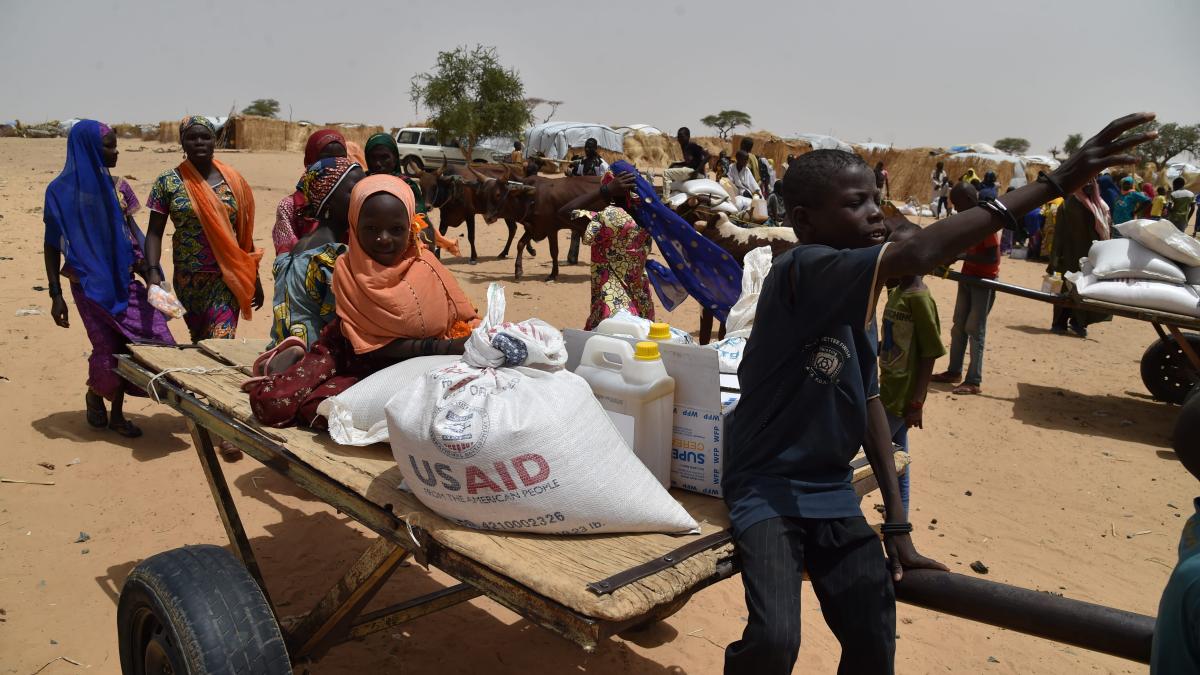Sean Flaherty lives in Iowa City.
Many Bleeding Heartland readers know this already, but we’re going to have to repeat a certain fact quite a lot in the next four years: Foreign aid makes up less than 1 percent of the U.S. federal budget. Cuts to this lifesaving aid could not be worse for America’s credibility and standing in the world.
ProPublica published a story on January 31 about the chaos that is choking non-governmental organizations that depend on funding from the U.S. Agency for International Development (USAID). These NGOs deliver critical services to millions of people around the world. The article by Anna Maria Barry-Jester and Brett Murphy describes a tragedy unfolding.
Aid groups that specialize in saving lives were relieved and thought their stop-work orders would be reversed just as swiftly as they had arrived.
But that hasn’t happened. Instead, more stop-work orders have been issued. As of Thursday [January 30], contractors worldwide were still grounded under the original orders and unable to secure waivers. Top Trump appointees arrested further funding and banned new projects for at least three months.
“We need to correct the impression that the waiver was self-executing by virtue of the announcement,” said Marcia Wong, the former deputy assistant administrator of USAID’s humanitarian assistance bureau.
Aid groups that had already received U.S. money were told they could not spend it or do any previously approved work. The contractors quoted in this article spoke on the condition of anonymity because they feared the administration might prolong their suspension or cancel their contracts completely.
I live in Iowa’s first Congressional district and just wrote to U.S. Representative Mariannette Miller-Meeks about this issue. Let’s hope that amidst the personnel chaos, we can still get humanitarian aid out the door.
My email to Congresswoman Miller-Meeks:
Dear Congresswoman Miller-Meeks,
I write to urge you to work with the White House and the State Department to ensure that life-saving US humanitarian aid is not interrupted. The lives of thousands or more people who need this aid, and the credibility of the United States in the Global South depend on it.
The Administration has said that waivers from President Trump’s funding freeze are proceeding apace, and US aid is being delivered. However, waivers are proving hard to obtain, and critical aid programs are in chaos. This includes former President George W. Bush’s Pepfar program to combat Hiv and AIDS. An article published in ProPublica just today explains:
https://www.propublica.org/article/trump-state-department-usaid-humanitarian-aid-freeze-ukraine-gaza-sudan?utm_source=bluesky&utm_medium=social&utm_campaign=propublica-bsky
“Aid groups that specialize in saving lives were relieved and thought their stop-work orders would be reversed just as swiftly as they had arrived.
But that hasn’t happened. Instead, more stop-work orders have been issued. As of Thursday, contractors worldwide were still grounded under the original orders and unable to secure waivers. Top Trump appointees arrested further funding and banned new projects for at least three months.
“We need to correct the impression that the waiver was self-executing by virtue of the announcement,” said Marcia Wong, the former deputy assistant administrator of USAID’s humanitarian assistance bureau.
Aid groups that had already received U.S. money were told they could not spend it or do any previously approved work. The contractors quoted in this article spoke on the condition of anonymity because they feared the administration might prolong their suspension or cancel their contracts completely.”
Foreign aid comprises less than 1% of our Federal tax dollars, and it helps build relationships in the Global South at a time when Russia and China are cultivating elites in these countries and gaining influence and power. Chaos in our humanitarian aid programs could not help our adversaries more.
Please consult with your colleagues and leadership to make sure America keeps its word to millions of people who still look to us as a beacon of hope.
Sincerely,
Sean Flaherty
Editor’s note from Laura Belin: Hours after I downloaded the top photo from the USAID website on February 1, the agency’s entire website was taken offline. You can find this image through the Wayback Machine.

